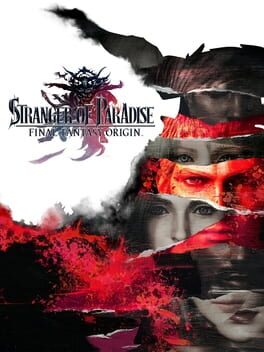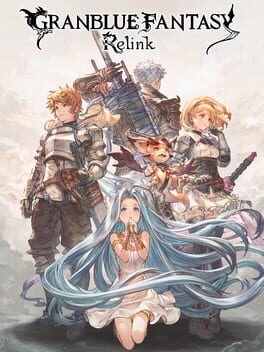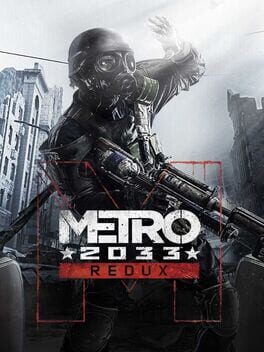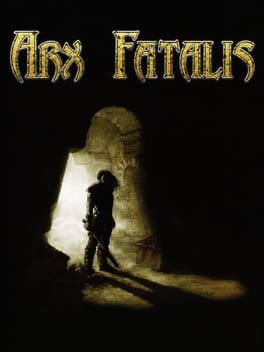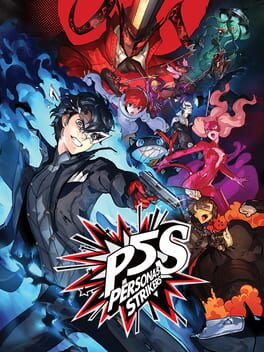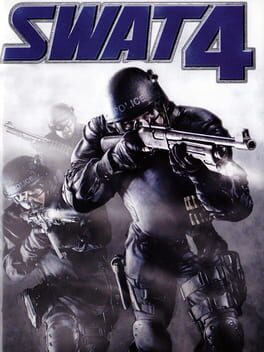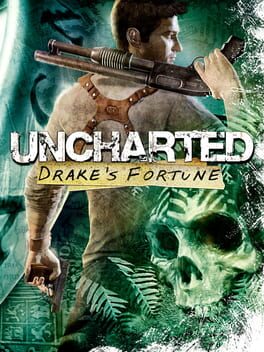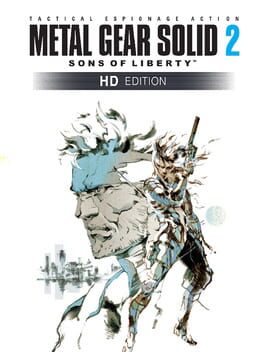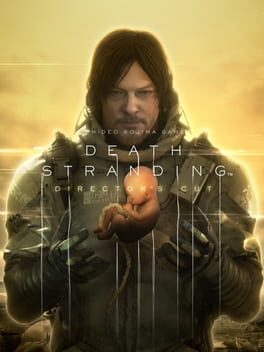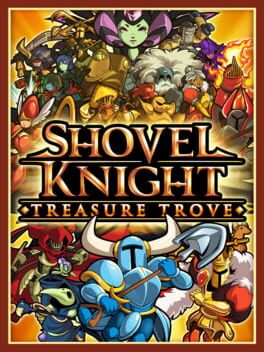ApexImperium
BACKER
881 Reviews liked by ApexImperium
Need for Speed: Heat
2019
EA releases probably the most decent NFS game of the last 10+ years and instead of unleashing its potential and making it a real contender and alternative to Forza Horizon with updates, new cars, maps etc they decide to pull the plug on it to release a shitty cringier cartoon NFS couple years later. Good job.
Despite its cringe story (i dont understand why ea is so persistent in putting these nonsensical stories in racing games, fast n furious was over 20 years ago) this is a great arcade racer with cool customization and a great neon aesthetic. It's not as good as Forza Horizon, but definitely worth it on a big sale.
Despite its cringe story (i dont understand why ea is so persistent in putting these nonsensical stories in racing games, fast n furious was over 20 years ago) this is a great arcade racer with cool customization and a great neon aesthetic. It's not as good as Forza Horizon, but definitely worth it on a big sale.
At the beginning of this game there is a trigger warning for those that suffer from mental disorders like mental psychosis or schizophrenia and, I gotta say, I think those warnings are justified. This game was stressful to play. Gorgeous visuals, incredible acting performances, and flawlessly executed sound design lend to this games stress-inducing effectiveness.
The story is very powerful and was, obviously, carried by Senua's character. Her struggle with the darkness, her anger, her fear, her anxieties, and her loss were all so tragic and made for a compelling protagonist. Her performance by Melina Juergens might be the most impressive video game performance I've ever seen and that elevated the game to the next level.
As far as gameplay goes, Hellblade is 80% a walking sim with some puzzles and combat sprinkled in. If you're looking for fun gameplay, this is not a game I would recommend. They had some neat perspective altering puzzles, but other than that the puzzles didn't do anything particularly exciting. The combat was, however, much more appealing. I actually like the philosophy of having "simplistic" combat for a game like this; it didn't need to be anything more than it was. Walking sims work for me when they don't overstay their welcome, and at a tight 6 hours this game certainly did not.
Overall, this game is hard to recommend. It's very arthouse and niche. But to the right gamer this, this game is a masterclass in both storytelling and visual design philosophy.
The story is very powerful and was, obviously, carried by Senua's character. Her struggle with the darkness, her anger, her fear, her anxieties, and her loss were all so tragic and made for a compelling protagonist. Her performance by Melina Juergens might be the most impressive video game performance I've ever seen and that elevated the game to the next level.
As far as gameplay goes, Hellblade is 80% a walking sim with some puzzles and combat sprinkled in. If you're looking for fun gameplay, this is not a game I would recommend. They had some neat perspective altering puzzles, but other than that the puzzles didn't do anything particularly exciting. The combat was, however, much more appealing. I actually like the philosophy of having "simplistic" combat for a game like this; it didn't need to be anything more than it was. Walking sims work for me when they don't overstay their welcome, and at a tight 6 hours this game certainly did not.
Overall, this game is hard to recommend. It's very arthouse and niche. But to the right gamer this, this game is a masterclass in both storytelling and visual design philosophy.
Hades
2018
Metro 2033 Redux
2014
It is a miracle that I got to finish this brilliant game, and now people can stop bullying me because I haven't played it before.
My rating criteria for this game are games released in 2010 and prior.
I had so many technical difficulties. Even by the standards of that time, this game has so many bugs that softlock you, tons of crashes, and buggy graphics settings. Also, controls got bugged, and I couldn't press the ESC key at all. I had to Alt-Tab every time to pause the game. These technical problems made me finish the game in a week, in about 25 sessions.
However, the story was intriguing, and the horror elements were used in such an amazing way that I got scared of my own shadow multiple times. The library part was made because they hate us players and they want us to have a heart attack. Plus. I liked the funny Ulman jokes.
Oh, the ending was also crazy! Here is footage of me during the ending!
My rating criteria for this game are games released in 2010 and prior.
I had so many technical difficulties. Even by the standards of that time, this game has so many bugs that softlock you, tons of crashes, and buggy graphics settings. Also, controls got bugged, and I couldn't press the ESC key at all. I had to Alt-Tab every time to pause the game. These technical problems made me finish the game in a week, in about 25 sessions.
However, the story was intriguing, and the horror elements were used in such an amazing way that I got scared of my own shadow multiple times. The library part was made because they hate us players and they want us to have a heart attack. Plus. I liked the funny Ulman jokes.
Oh, the ending was also crazy! Here is footage of me during the ending!
Arx Fatalis
2002
Arx Fatalis is very much a relic of its time. A game that was made back when games were arguably much more willing to take creative risks to create a unique setting. It's the type of game that, even from a studio like Arkane, you probably wouldn't see. However, it being a relic of its time means that it comes with some drawbacks that are at their best jarring, and at their worst infuriating.
Arx's strongest aspect by far is the atmosphere it invokes. I always love living underground in sandbox games where it allows me to, so an entirely underground civilization is right up my alley. The artistic direction and sound design (barring some awkward transitions and harsher sounds) accentuates this beautifully, as does some of the humor the game pulls in the first half.
I also found the rather clunky combat growing on me over time. It's very slow nad methodical, but it was nice using that slower combat to weave in spells once I got more of them unlocked. Even the spell system is unique, drawing out combos of shapes to cast spells. If I do return to Arx at some point, a spell-based build is an absolute must for me.
However, these strengths are beset by some hefty negatives. The biggest issue by far was with Arx's infatuation with making things obscure. I can handle having to find some things out and puzzle solve without too much guidance, and I'll fully admit there's stuff I looked up that I probably should've pieced together. However, I can't imagine playing this game without several walkthroughs showing me how to do x, y, and z. Hell, I went through half the game completely misunderstanding the heavy attack system since it doesn't teach you.
Some of this can be explained by early PC games having manuals, but the way you progress the main quest can be unnecessarily vague and require random bits and bobs. It could be a pickaxe from a specific level here, or a specific spell there. It drew the runtime out immensely to where I eventually started noclipping through walls at times just so I could skip some parts of the busywork. One part was even necessary when one of the objectives just didn't spawn in.
The story also isn't anything to write home about. It's fairly bog standard for its time, and has plenty of exposition dumps for you to immediately forget. If you skip through most cutscenes then you should be fine, but it can be pretty tiring if you care a lot about lore like me.
I think Arx will jump comfortably in that pile of games that aren't bad, but could go so, so much further with a modern-day remake. Keeping that art direction and combat similar while not being so up its own ass with obscurity would go a lot way, as would making the main plot a little more intriguing. If you can appreciate an atmospheric RPG, and especially if you have Game Pass, this is still worth checking out.
Arx's strongest aspect by far is the atmosphere it invokes. I always love living underground in sandbox games where it allows me to, so an entirely underground civilization is right up my alley. The artistic direction and sound design (barring some awkward transitions and harsher sounds) accentuates this beautifully, as does some of the humor the game pulls in the first half.
I also found the rather clunky combat growing on me over time. It's very slow nad methodical, but it was nice using that slower combat to weave in spells once I got more of them unlocked. Even the spell system is unique, drawing out combos of shapes to cast spells. If I do return to Arx at some point, a spell-based build is an absolute must for me.
However, these strengths are beset by some hefty negatives. The biggest issue by far was with Arx's infatuation with making things obscure. I can handle having to find some things out and puzzle solve without too much guidance, and I'll fully admit there's stuff I looked up that I probably should've pieced together. However, I can't imagine playing this game without several walkthroughs showing me how to do x, y, and z. Hell, I went through half the game completely misunderstanding the heavy attack system since it doesn't teach you.
Some of this can be explained by early PC games having manuals, but the way you progress the main quest can be unnecessarily vague and require random bits and bobs. It could be a pickaxe from a specific level here, or a specific spell there. It drew the runtime out immensely to where I eventually started noclipping through walls at times just so I could skip some parts of the busywork. One part was even necessary when one of the objectives just didn't spawn in.
The story also isn't anything to write home about. It's fairly bog standard for its time, and has plenty of exposition dumps for you to immediately forget. If you skip through most cutscenes then you should be fine, but it can be pretty tiring if you care a lot about lore like me.
I think Arx will jump comfortably in that pile of games that aren't bad, but could go so, so much further with a modern-day remake. Keeping that art direction and combat similar while not being so up its own ass with obscurity would go a lot way, as would making the main plot a little more intriguing. If you can appreciate an atmospheric RPG, and especially if you have Game Pass, this is still worth checking out.
Persona 5 Strikers
2020
If I had a nickel for every time a final boss in a Persona 5 game was also the main priceless artifact in an Indiana Jones movie, I'd have two nickels, which isn't a lot but it's weird that it happened twice.
Seriously though, this game was phenomenally fun! It's an amazing sequel to Persona 5, with amazing new characters to vibe with, and if you've been hesitant to play it, I CAN'T RECOMMEND IT ENOUGH!
Seriously though, this game was phenomenally fun! It's an amazing sequel to Persona 5, with amazing new characters to vibe with, and if you've been hesitant to play it, I CAN'T RECOMMEND IT ENOUGH!
SWAT 4
2005
So above and beyond what a tactical police shooter would reasonably need to have in so many different areas that you wonder how it even came to be. SWAT 4 may sit at the top of the very narrow category of most anxiety-inducing simultaneous first and second person shooters with needlessly detailed environmental storytelling, but it’s led me to a much broader, more general thought – for how saturated and longstanding a genre it is, how much has what you can do with a shooter really been explored?
A few things about it bring this question to mind, but the main one for me’s its morale system. Each enemy and civilian has a different level of morale which affects how likely they are to surrender, pretend to surrender before pulling some kind of stunt or be nakedly noncompliant whenever you and your squad shout at them. By themselves, these kinds of reactions go a long way toward making it so that the player can never guess what’ll happen when they open any given door, but what takes this system to the next level is the sheer amount of factors which can affect it; whether they’re a group of trained gunman or a single inexperienced gangbanger, whether they’ve been stunned with some form of nonlethal attack, whether there are any hostages for them to take advantage of or hostiles to point you in the direction of, how many of you there are versus how many of them, how much damage they’ve sustained to each of their limbs and, my favourite, surprising them with warning shots. I’d never realised until playing this that hitting or missing a target in a shooter doesn’t necessarily have to be a dichotomy between success or failure – here, the latter can also be a tool for intimidation when Officer Backloggd User’s vocal chords aren’t cutting it alone. Firing a shotgun near someone’s feet to twist what’d normally be a failure state into something potentially advantageous extends past the fantasy of feeling like a Michael Mann character and gets the mind wondering about the uncapitalised potential of not just this genre, but others too. Why, for instance, do RPGs still often limit us to dialogue boxes labelled (Intimidate) or whatever when a far more organic implementation of that sort of interaction’s right here?
This sort of unpredictability which causes each attempt at the same level to play out differently every time’s a specialty of SWAT 4. Choosing different entry points coupled with NPCs’ semi-randomised spawns contribute a fair amount to this too, especially when specific characters are part of the mission’s objectives in some way, though the fact that the aforementioned limb-based damage system also applies to you and your squad plays a large role as well. While the extent to which this game wants you to take it slow’s immediately felt in the pairing of its relatively low movement speed and how harshly guns’ crosshairs widen, it becomes even more apparent when you’ve got an injured leg, head or arm. Suddenly, you find yourself even more hesitant to attempt to follow a fleeing suspect through a series of doors they’re shutting behind them, and whatever strategies you had in mind when selecting your long-range equipment have been scuppered by your diminished accuracy. If it sounds restrictive, don’t worry, because it can open up about as many avenues of play as it can close; one example I particularly enjoyed involved clearing a mission which heavily encourages you to use nonlethal weaponry by instead aiming for unarmoured limbs with 9mm FMJ rounds, since it’s easier to skirt around score penalties by incapacitating hostiles rather than killing them.
Although there’s an easy comparison to be made in terms of the replayability of individual encounters with its contemporary F.E.A.R., down to how heavily this stems from the AI’s dynamic behaviours, there’s another, less expected parallel in how thickly it lays on all things atmospheric. Breaching a two-storey room filled with explosive canisters and over half a dozen heavily armed death cultists is nerve-wracking enough, then it decides to hit you with a scene like this just moments after. It’d be easy to think of moments like this or a much earlier, loose equivalent of VTMB’s Ocean House Hotel as borderline genre pivots, but they’re more tonally synergistic than they seem at first. This is a game in which you die in two clean hits regardless of difficulty, so much as taking your eye off a bodycam for a second can prove to be fatal and, as noted above, you can never fully anticipate what’s going to greet you on the other side of a door, so it makes sense to ensure that the player can never anticipate what’s up next on a conceptual level in addition to a mechanical one, as well as to occasionally dial up the horror and exacerbate the uneasiness that average Joes with Uzis are already so good at instilling.
Irrational’s prior experience with horror isn’t the only instance of their ancestry rearing its head in the least likely of places, either. If you weren’t aware that they originated by splintering off from Looking Glass, having played one of the first two Thief games prior to this will probably clue you in, because SWAT 4’s incomplete, often hand-drawn, hastily annotated maps are straight out of those. You can only ever make a rough mental approximation of the layout of wherever you’re about to raid because of it, and chances are it’ll have geographical changes, potential hazards or other objectives they can’t possibly account for. It’s a small but brilliant touch which makes every eruption of overlapping GET DOWNs and WHERE’S MY GODDAMN LAWYERs mixed with gunfire all the more hectic as you’re inevitably forced to piece together your own whereabouts in the thick of it, usually while juggling your own perspective with that of a squadmate’s bodycam or a sniper feed to boot.
Despite how spur-of-the-moment all of this makes it sound and how many different ingredients are packed into it, up to and including some of Eric Brosius’ funkiest work, SWAT 4’s really a game of exceptionally singular focus; as the objective menu puts it, restoring order to chaos. It’s felt even in the size of its levels, which are just right for how many moving parts they each have and the number of ways in which those parts can be manipulated – you can charge me on account of lying if I told you that it’s always fun hunting down the last remaining suspect regardless, but it is always intense, and in general the most minor of blemishes on what’s otherwise one of many attestations to the fact that we’d probably be grand if games had just stopped progressing past what they could do in 2005.
Keep your cool, fiddle with your squadmates’ equipment and make regular use of the command menu to breach whatever obstacles are between you and giving this game a try, boss.
A few things about it bring this question to mind, but the main one for me’s its morale system. Each enemy and civilian has a different level of morale which affects how likely they are to surrender, pretend to surrender before pulling some kind of stunt or be nakedly noncompliant whenever you and your squad shout at them. By themselves, these kinds of reactions go a long way toward making it so that the player can never guess what’ll happen when they open any given door, but what takes this system to the next level is the sheer amount of factors which can affect it; whether they’re a group of trained gunman or a single inexperienced gangbanger, whether they’ve been stunned with some form of nonlethal attack, whether there are any hostages for them to take advantage of or hostiles to point you in the direction of, how many of you there are versus how many of them, how much damage they’ve sustained to each of their limbs and, my favourite, surprising them with warning shots. I’d never realised until playing this that hitting or missing a target in a shooter doesn’t necessarily have to be a dichotomy between success or failure – here, the latter can also be a tool for intimidation when Officer Backloggd User’s vocal chords aren’t cutting it alone. Firing a shotgun near someone’s feet to twist what’d normally be a failure state into something potentially advantageous extends past the fantasy of feeling like a Michael Mann character and gets the mind wondering about the uncapitalised potential of not just this genre, but others too. Why, for instance, do RPGs still often limit us to dialogue boxes labelled (Intimidate) or whatever when a far more organic implementation of that sort of interaction’s right here?
This sort of unpredictability which causes each attempt at the same level to play out differently every time’s a specialty of SWAT 4. Choosing different entry points coupled with NPCs’ semi-randomised spawns contribute a fair amount to this too, especially when specific characters are part of the mission’s objectives in some way, though the fact that the aforementioned limb-based damage system also applies to you and your squad plays a large role as well. While the extent to which this game wants you to take it slow’s immediately felt in the pairing of its relatively low movement speed and how harshly guns’ crosshairs widen, it becomes even more apparent when you’ve got an injured leg, head or arm. Suddenly, you find yourself even more hesitant to attempt to follow a fleeing suspect through a series of doors they’re shutting behind them, and whatever strategies you had in mind when selecting your long-range equipment have been scuppered by your diminished accuracy. If it sounds restrictive, don’t worry, because it can open up about as many avenues of play as it can close; one example I particularly enjoyed involved clearing a mission which heavily encourages you to use nonlethal weaponry by instead aiming for unarmoured limbs with 9mm FMJ rounds, since it’s easier to skirt around score penalties by incapacitating hostiles rather than killing them.
Although there’s an easy comparison to be made in terms of the replayability of individual encounters with its contemporary F.E.A.R., down to how heavily this stems from the AI’s dynamic behaviours, there’s another, less expected parallel in how thickly it lays on all things atmospheric. Breaching a two-storey room filled with explosive canisters and over half a dozen heavily armed death cultists is nerve-wracking enough, then it decides to hit you with a scene like this just moments after. It’d be easy to think of moments like this or a much earlier, loose equivalent of VTMB’s Ocean House Hotel as borderline genre pivots, but they’re more tonally synergistic than they seem at first. This is a game in which you die in two clean hits regardless of difficulty, so much as taking your eye off a bodycam for a second can prove to be fatal and, as noted above, you can never fully anticipate what’s going to greet you on the other side of a door, so it makes sense to ensure that the player can never anticipate what’s up next on a conceptual level in addition to a mechanical one, as well as to occasionally dial up the horror and exacerbate the uneasiness that average Joes with Uzis are already so good at instilling.
Irrational’s prior experience with horror isn’t the only instance of their ancestry rearing its head in the least likely of places, either. If you weren’t aware that they originated by splintering off from Looking Glass, having played one of the first two Thief games prior to this will probably clue you in, because SWAT 4’s incomplete, often hand-drawn, hastily annotated maps are straight out of those. You can only ever make a rough mental approximation of the layout of wherever you’re about to raid because of it, and chances are it’ll have geographical changes, potential hazards or other objectives they can’t possibly account for. It’s a small but brilliant touch which makes every eruption of overlapping GET DOWNs and WHERE’S MY GODDAMN LAWYERs mixed with gunfire all the more hectic as you’re inevitably forced to piece together your own whereabouts in the thick of it, usually while juggling your own perspective with that of a squadmate’s bodycam or a sniper feed to boot.
Despite how spur-of-the-moment all of this makes it sound and how many different ingredients are packed into it, up to and including some of Eric Brosius’ funkiest work, SWAT 4’s really a game of exceptionally singular focus; as the objective menu puts it, restoring order to chaos. It’s felt even in the size of its levels, which are just right for how many moving parts they each have and the number of ways in which those parts can be manipulated – you can charge me on account of lying if I told you that it’s always fun hunting down the last remaining suspect regardless, but it is always intense, and in general the most minor of blemishes on what’s otherwise one of many attestations to the fact that we’d probably be grand if games had just stopped progressing past what they could do in 2005.
Keep your cool, fiddle with your squadmates’ equipment and make regular use of the command menu to breach whatever obstacles are between you and giving this game a try, boss.
Alan Wake II
2023
Sam Lake's got the kind of ego that would be the stuff of Greek myths lmao
I've hated games for a lot less than what this game did to me but I can't help but adore it. It's so up my alley as someone who has come to love horror and who recently watched the entirety of Twin Peaks. It's so clearly influenced by David Lynch's style of abstract, stiff presentation but with this B-movie earnestness I can't help but love.
Narrative, visuals, art direction, acting, music, and ambience are all pitch perfect. So beautifully dialled in to be juuuuuuust camp and cliche enough to feel familiar but intense and professional enough to be deeply enthralling. The use of live action video here is actually great and meshes really well given how incredible the in-engine material looks. The way the game changes stuff on the fly is also insanely impressive.
Gameplay is kind of a mess. It can broadly be described as survival-horror with its focus on resource management and third-person action against evil monsters. But the game also borders on being a bit walking simulator-esque in places, a bit puzzle in other places, and almost like a AAA visual novel in the Writer's Room and Mind Place. It feels way too hand-holdy in narrative sections and way too difficult in combat with how fast and powerful some enemies are. I could tear this game apart for its gameplay but I mostly enjoyed my time (except for combat in Alan's sections, which often got way too difficult) and I was too wrapped up in the narrative to care.
The game also is buggy. Not unplayable, but sometimes you'll get caught in terrain, or a button won't work, or the map won't load correctly. Definitely in need of some fixes.
I've never cared much for Remedy's work until now. It's always felt like they were aiming way too high above their level and while AWII definitely feels that way at points, it feels like they've now gotten to a point where they're capable of punching far above their weight.
With some mechanical refinement and deepening of player interaction, I believe Remedy have it in them to deliver an absolutely devastating third installment.
Highest recommend FFO: Twin Peaks, third person survival horror, arthouse cinema and video games
I've hated games for a lot less than what this game did to me but I can't help but adore it. It's so up my alley as someone who has come to love horror and who recently watched the entirety of Twin Peaks. It's so clearly influenced by David Lynch's style of abstract, stiff presentation but with this B-movie earnestness I can't help but love.
Narrative, visuals, art direction, acting, music, and ambience are all pitch perfect. So beautifully dialled in to be juuuuuuust camp and cliche enough to feel familiar but intense and professional enough to be deeply enthralling. The use of live action video here is actually great and meshes really well given how incredible the in-engine material looks. The way the game changes stuff on the fly is also insanely impressive.
Gameplay is kind of a mess. It can broadly be described as survival-horror with its focus on resource management and third-person action against evil monsters. But the game also borders on being a bit walking simulator-esque in places, a bit puzzle in other places, and almost like a AAA visual novel in the Writer's Room and Mind Place. It feels way too hand-holdy in narrative sections and way too difficult in combat with how fast and powerful some enemies are. I could tear this game apart for its gameplay but I mostly enjoyed my time (except for combat in Alan's sections, which often got way too difficult) and I was too wrapped up in the narrative to care.
The game also is buggy. Not unplayable, but sometimes you'll get caught in terrain, or a button won't work, or the map won't load correctly. Definitely in need of some fixes.
I've never cared much for Remedy's work until now. It's always felt like they were aiming way too high above their level and while AWII definitely feels that way at points, it feels like they've now gotten to a point where they're capable of punching far above their weight.
With some mechanical refinement and deepening of player interaction, I believe Remedy have it in them to deliver an absolutely devastating third installment.
Highest recommend FFO: Twin Peaks, third person survival horror, arthouse cinema and video games
(Third Playthrough)
...April 30th?
Calling this work of art my favorite video game ever made doesn't do it justice. A lot of people say video games change their lives, but this game actually changed my life. This game isn't just my favorite video game ever, It's my favorite piece of art ever, It's my favorite piece of storytelling ever. It's been about 2 years since I played it for the first time and cemented it as my favorite. This game will always be the most personal piece of art ever created for me and I will continue to cherish this fantastic work of fiction for the rest of my life.
anyway im gonna go play as raiden in fortnite now
...April 30th?
Calling this work of art my favorite video game ever made doesn't do it justice. A lot of people say video games change their lives, but this game actually changed my life. This game isn't just my favorite video game ever, It's my favorite piece of art ever, It's my favorite piece of storytelling ever. It's been about 2 years since I played it for the first time and cemented it as my favorite. This game will always be the most personal piece of art ever created for me and I will continue to cherish this fantastic work of fiction for the rest of my life.
anyway im gonna go play as raiden in fortnite now
I was genuinely surprised by just how much I enjoyed Treasure Trove, having never touched the Shovel Knight franchise before. I'm not super big on 2D platformers yet I found myself consistently returning to beat a couple more levels.
The biggest reason for my enjoyment easily comes with how unique the whole package is. Each of the four games included is quite unique in how their main character performs, with Plague Knight in Plague of Shadows being a particular highlight. You have to retool how you approach each experience, and it's ironically better for it.
Even beyond the broader freshness, each level in each of the four games feels distinct, with unique soundtracks, varied enemies, and tons of different environmental hazards to navigate. It makes each game quite memorable, even when the fourth game, King of Cards, splits single locations into multiple levels.
It's all wrapped in this labor of love that shows just how much Yacht Club cared about their brainchild. The humor is spot-on, the music is full of bangers, and the visuals all feel distinct and pleasing. It oozes passion, making it almost hard to put down.
However, there is one thing holding the package back, being the inconsistencies across each experience. Shovel of Hope is great on its own, but pales in uniqueness to the rest of the package. Plague of Shadows reuses levels and makes them a touch tiring (something remedied by the final two games). Specter of Torment feels piss easy thanks to overloading you with powerful abilities and moves, and King of Cards often feels like a challenge mode that I wasn't asking for. I also didn't love Joustous, but I attribute that more to me not adoring card games online than any issue with the card game itself.
However, each inversely came with strengths over the others. Shovel of Hope makes for a great introduction for its simplicity. Plague of Shadows has the most diverse equipment loadout in the entire collection, Specter of Torment has the most fluid movement, and King of Cards has the best humor.
If you're a fan of 2D platformers or can at least tolerate it, there's a ton to love in Treasure Trove. Its got over 20 hours of content for main story completers like me to explore, and hundreds more hours for completionists. It's a package brimming with content and passion, and one I don't regret playing through fully. I'm almost surprised only 5% of people finished up to the last game, at least on Steam.
The biggest reason for my enjoyment easily comes with how unique the whole package is. Each of the four games included is quite unique in how their main character performs, with Plague Knight in Plague of Shadows being a particular highlight. You have to retool how you approach each experience, and it's ironically better for it.
Even beyond the broader freshness, each level in each of the four games feels distinct, with unique soundtracks, varied enemies, and tons of different environmental hazards to navigate. It makes each game quite memorable, even when the fourth game, King of Cards, splits single locations into multiple levels.
It's all wrapped in this labor of love that shows just how much Yacht Club cared about their brainchild. The humor is spot-on, the music is full of bangers, and the visuals all feel distinct and pleasing. It oozes passion, making it almost hard to put down.
However, there is one thing holding the package back, being the inconsistencies across each experience. Shovel of Hope is great on its own, but pales in uniqueness to the rest of the package. Plague of Shadows reuses levels and makes them a touch tiring (something remedied by the final two games). Specter of Torment feels piss easy thanks to overloading you with powerful abilities and moves, and King of Cards often feels like a challenge mode that I wasn't asking for. I also didn't love Joustous, but I attribute that more to me not adoring card games online than any issue with the card game itself.
However, each inversely came with strengths over the others. Shovel of Hope makes for a great introduction for its simplicity. Plague of Shadows has the most diverse equipment loadout in the entire collection, Specter of Torment has the most fluid movement, and King of Cards has the best humor.
If you're a fan of 2D platformers or can at least tolerate it, there's a ton to love in Treasure Trove. Its got over 20 hours of content for main story completers like me to explore, and hundreds more hours for completionists. It's a package brimming with content and passion, and one I don't regret playing through fully. I'm almost surprised only 5% of people finished up to the last game, at least on Steam.

